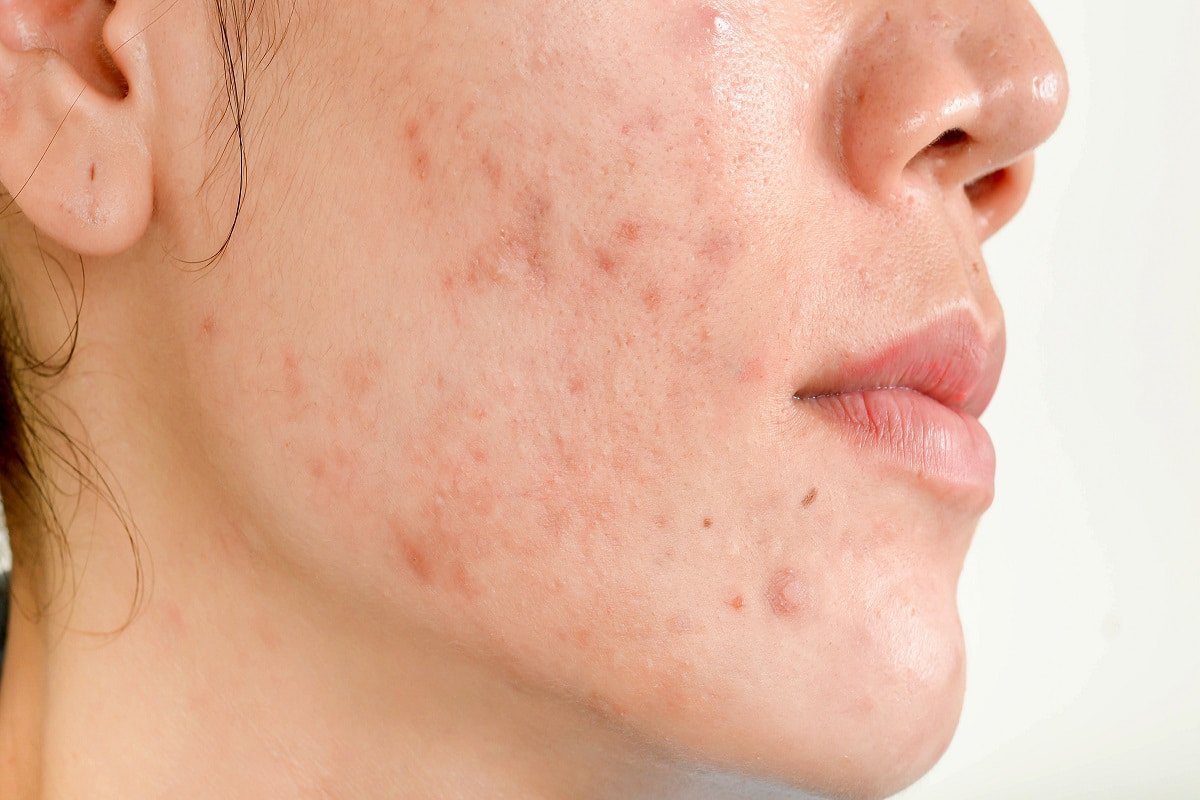How Doxycycline Ruined My Life?

Doxycycline is a generic drug that is used to treat antiviral infections, malaria, and even severe acne. Most of the time, it’s given with other drugs as part of a treatment plan. This drug comes with a long list of warnings, including serious side effects, possible allergic reactions, and food interactions.
One also needs to know how to take this medicine and if it might interact with other drugs. If you aren’t careful, this drug could have very bad effects on you. There are different signs that something is wrong, and if you notice them, you should get help right away before things get worse.
Read this article to learn more about the many side effects of Doxycycline and how Doxycycline ruined my life.
Table of Contents
Who uses doxycycline? and Doxycycline Ruined My Life?
A doctor might give you doxycycline to treat a bacterial infection. It’s a pretty good way to treat bacterial infections, like STDs, skin infections, eye infections, lung infections, and so on.
What kind of drug is Doxycycline?
Doxycycline Ruined My Life. Doxycycline is a drug that kills germs. Antibiotics are medicines that are made to fight infections caused by bacteria. Antibiotics kill bacteria by killing them directly or slowing their growth for long enough for the body’s immune system to take care of them. If you want to know how long doxycycline takes to work for a bacterial infection, it depends on your health.
Doxycycline is an antibiotic in the group called tetracyclines. So, it stops bacteria from growing, which is how it works. Doxycycline was made for the first time in 1957, and it has been sold in stores since 1967. Since it is a prescription drug, you can’t buy it at the pharmacy without a prescription. It is used to treat a wide range of infections caused by bacteria.
The common indications for Doxycycline therapy are:
- Respiratory tract infections
- Urinary tract infections
- Intestinal infections
- Sexually transmitted infections
- Periodontal infections
- Conjunctivitis
- Tick fever
Doxycycline is also often given to people with rosacea who have acne. Because it kills germs, it has a small amount of anti-inflammatory effects. This is a good way to treat rosacea, which makes the face red and swollen.
How to take doxycycline?
If you’re taking 40mg of doxycycline a day for rosacea or gum infections, take it at least an hour before food.For other types of infections, you can take a higher dose of 100mg or more with or without food. But if you take it with food, you’re less likely to feel sick.
Don’t take your medicine with milk or cheese. This is because milk, cheese, and yoghurt can make it hard for your body to absorb doxycycline. You can eat dairy products a few hours before or after your dose.
It’s important to be standing up when you take a doxycycline. You can sit, stand, or move around. This will keep the medicine from making your stomach or food pipe hurt. After taking doxycycline, don’t lie down for at least 30 minutes.
If you take it twice a day, you could do so in the morning and before you go to sleep at night. After taking doxycycline, try not to lie down for at least 30 minutes. This keeps things from getting too annoying.
If you are taking doxycycline to treat malaria, start your treatment 1 or 2 days before you go to a place where malaria is common. Stop taking it when you leave the area for 4 weeks. Check with your doctor or pharmacist to see if doxycycline is the best medicine to prevent malaria in the country you are going to.
Read More: How To Calculate Percent Loss of Weight?
Who may not be able to take doxycycline
Doxycycline is not suitable for some people. To make sure it’s safe for you, tell your doctor if you:
- have ever had an allergic reaction to doxycycline or any other medicine
- have kidney or liver problems
- have an inflamed food pipe (oesophagitis)
- have lupus, an autoimmune disease
- have myasthenia gravis, a condition that causes severe muscle weakness
- are pregnant or breastfeeding
Taking doxycycline with other medicines
Some medicines don’t work well together with doxycycline. Tell your doctor if you are already taking any of the following medications:
- indigestion remedies (antacids)
- stomach ulcer medicines that contain bismuth such as Pepto-Bismol
- other antibiotics, such as rifampicin
- acne medicines containing vitamin A, such as isotretinoin
- warfarin, a medicine to help prevent blood clots
- medicines for epilepsy, such as phenytoin or carbamazepine
- ciclosporin, a medicine that calms down your immune system
If you take doxycycline, a typhoid vaccine that you take by mouth may not work as well. Since the typhoid vaccine is not a live vaccine, it is fine to get an injection while taking antibiotics.
Read More: How To Make Fruits And Vegetable Virus Free
Precautions while taking Doxycycline
Doxycycline is an antibiotic that is very strong. So it needs to be taken carefully and with some care. Doxycycline is not given to children under the age of 8 or to women who are pregnant. Tetracyclines can damage a child’s tooth enamel and change the color of their teeth. During pregnancy, it can get into the baby’s bones through the placenta and hurt them. It can also change the color of teeth for life.
People who are allergic to tetracycline drugs are also not given doxycycline. If you have any of the following conditions, you can’t take Doxycycline:
- Have had an allergic reaction to doxycycline or any other tetracycline medication
- Are suffering from Liver disease
- Are suffering from Kidney disease
- Are suffering from Oesophageal inflammation (oesophagitis)
- Have asthma or sulfite allergy
- Have an increased intracranial pressure
- Are suffering from any autoimmune condition
As a kind of tetracycline, doxycycline has many of the same side effects. Along with these, new reports are starting to show that doxycycline may have neurological and psychiatric side effects that are not yet known.
Side effects of Doxycycline
A medicine may have some effects you don’t want along with the ones you do. Even though not all of these side effects might happen, if they do, you might need to see a doctor.
Talk to your doctor right away if any of these side effects happen:
- Headache
- Loss of appetite
- Nausea and vomiting
- Diarrhea
- Fever
- Bloating
- Indigestion
- Hives or welts, itching, or rash
- Unusual weight loss
- Sensitivity to the sun
- Pain in the stomach, side, or abdomen
- Hives
- Temporary discoloring of adult teeth
- Painful or difficult urination
- Stomach pain or tenderness
Some patients may also have side effects that aren’t on this list. If you have any other side effects, talk to your doctor or nurse.
Conclusion
So Doxycycline might not be what it seems to be. It is a simple antibiotic that is often used, but it could kill you. Since new information about doxycycline has come out recently, the “Doxycycline ruined my life” posts seem all the more relevant. Drugs are a problem, and the only way to solve it is to make people aware of it. Knowing the risks of a medicine and the signs that something is wrong could be the difference between life and death.
After reading this article, you should know enough to tell your friends and family. People will be safer if they know more.
Frequently Asked Questions (FAQs) about Doxycycline Ruined My Life
Can doxycycline damage be permanent?
Doxycycline may permanently change the color of teeth and slow down bone growth.If the child’s doctor doesn’t say so, this drug shouldn’t be given to kids under the age of 8. (save for the treatment of inhalational anthrax or rickettsia infection).
Can the antibiotic Doxycycline Hyclate make you sad?
We still don’t know how doxycycline changes behavior and mental health, or how it works. But there are signs that doxycycline may make people feel sad. It causes many people to say, “Doxycycline hyclate ruined my life,” which is not a good thing.
Can damage done by doxycycline be permanent?
Doxycycline might change the color of your teeth for good and slow down the growth of your bones. If your child is 8 years old or younger, you shouldn’t give them this medicine unless their doctor tells you to. The only exception is if they’ve been exposed to anthrax or rickettsia through the air.
Can doxycycline make you feel bad?
This drug could make your skin, nails, eyes, teeth, gums, or scars darker. If you are worried, talk to your doctor. Doxycycline can cause diarrhea, which can sometimes be very bad. It could happen up to 2 months after you stop taking this medicine.
How can I tell if the doxycycline is helping?
Response and how well it worked. When doxycycline is taken by mouth, almost all of it is absorbed. Peak concentrations happen two to three hours after a dose, but it can take up to 48 hours for symptoms of an infection to start to go away.
How well does doxycycline work?
Generic, available right away: Normal dosage is 200 mg on the first day of treatment, which is broken up into 100 mg doses every 12 hours. The next step is to take 100 mg every day. For infections that are worse, you should take 100 mg every 12 hours.
How long does it take for doxycycline to work?
Serum half-life for doxycycline is between 16 and 22 hours. So it will stay in your body for about five days.
How long do doxycycline’s side effects last?
Doxycycline’s half-life for getting rid of the body is between 16 and 22 hours (for healthy adults). This is how long it takes for your body to get rid of half of the plasma. Usually, it takes about 5.5 times the half-life (in hours) for a drug to leave your body completely.
Who should not take doxycycline?
Doxycycline shouldn’t be given to kids younger than 8 years old unless they have inhaled anthrax, Rocky Mountain spotted fever, or your doctor says it’s necessary.
What should you avoid when taking doxycycline?
What foods and medicines should I stay away from while I’m taking Doxycycline (Vibramycin)? Do not take iron supplements, multivitamins, calcium supplements, antacids, or laxatives within two hours before or after taking doxycycline. If your doctor hasn’t told you to, don’t take any other antibiotics with doxycycline.
What does it look like when someone is allergic to doxycycline?
A rash, itching, swelling of the tongue, hands, or feet, a fever, or trouble breathing are all signs of an allergic reaction. Call your doctor right away if you have any of these signs. Children should know that this medicine could stain their teeth if they are younger than 8 years old.
What does doxycycline do to your body over time?
Long-term effects of doxycycline include changing the color of teeth and making children’s teeth enamel thin while their teeth are still growing. We don’t know what will happen to adults in the long run.
What are the bad things that doxycycline does?
severe headaches, ringing in your ears, dizziness, nausea, vision problems, and pain behind your eyes; loss of appetite, upper stomach pain (that may spread to your back), tiredness, nausea or vomiting, fast heart rate, dark urine, and jaundice (yellowing of the skin or eyes).
Do you feel bad when you take Doxycycline?
Yes, people have said that doxycycline makes their moods change. It could also cause stress.





